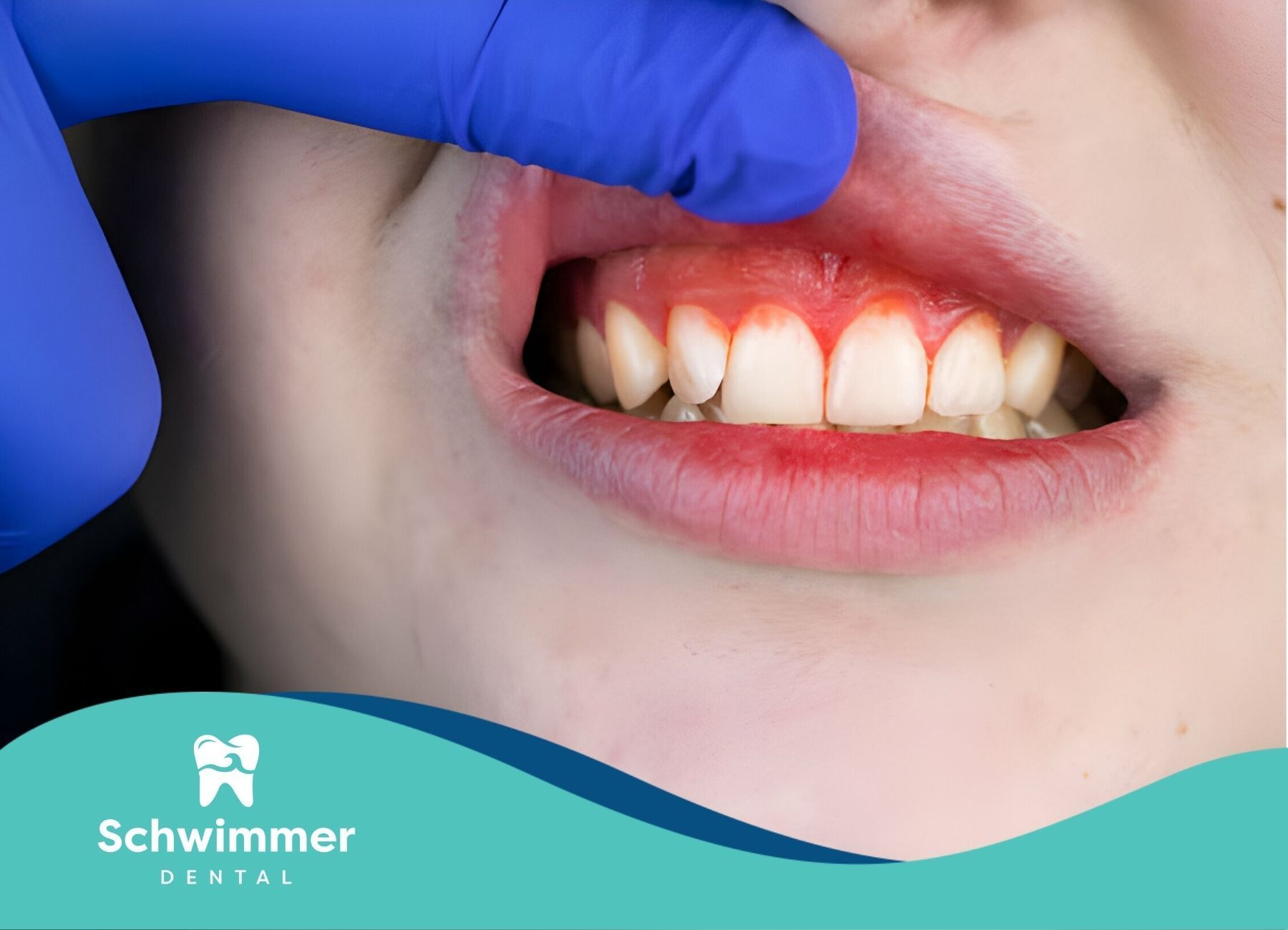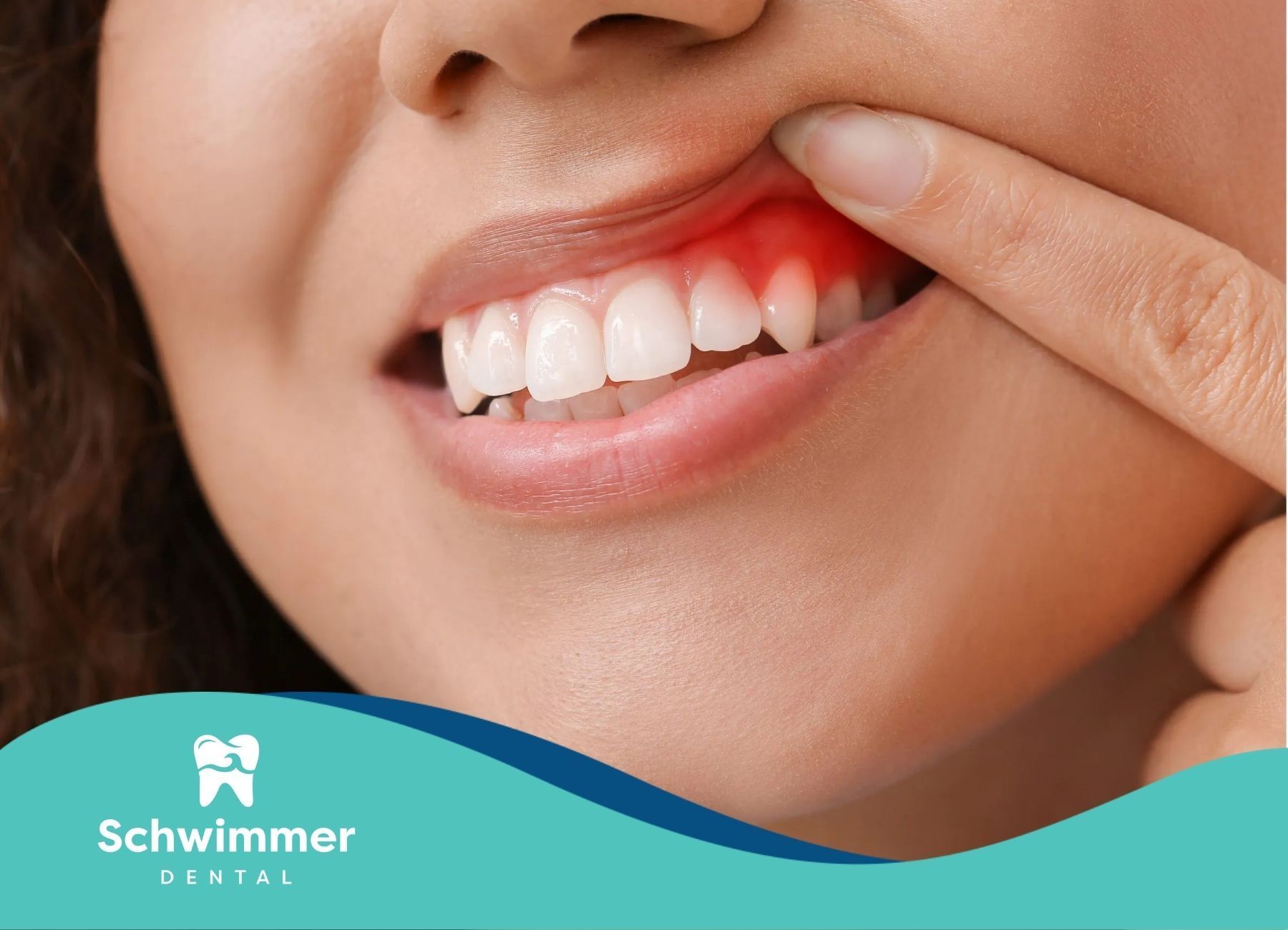Have an appointment? Complete the Intake Form
Important Questions to Ask Your Dentist
Oral health plays a significant role in overall well-being, and maintaining it involves more than just brushing and flossing. Routine visits to your dentist are crucial for keeping your smile in top condition. But how can you ensure that you’re getting the most out of your dental appointments? The key lies in asking the right questions.
During a dental visit, you should not only follow up on any concerns you might have but also take the opportunity to learn more about your oral health, preventive strategies, and potential treatment options. With that in mind, this article will guide you through the essential questions to ask your dentist, helping you make informed decisions about your dental care.
Whether you're facing a routine checkup or considering a more advanced procedure, these questions can ensure that you fully understand your oral health and the care you require. Let’s dive into the top questions you should ask your dentist during your next visit.
Understanding Your Oral Health
The first step in any dental visit is understanding the current state of your oral health. Your dentist should provide a thorough examination and explain the findings clearly.
1. What is the current state of my oral health?
This is the most important question to ask. Before any recommendations or treatments, it's crucial to get a detailed picture of your oral health. Ask your dentist to provide an assessment of your teeth, gums, and overall oral hygiene. This will help you understand where you stand and what areas need attention.
2. Are there any signs of gum disease or cavities?
Regular check-ups help catchearly signs of gum disease, cavities, or other oral issues. Early intervention is key to preventing more severe problems in the future. Inquire about the health of your gums, whether there's any plaque buildup, or if you show any signs of gingivitis or more severe gum disease.
3. What are the symptoms of gum disease, and how can I prevent it?
If your dentist hasn’t already mentioned gum disease, it’s worth bringing it up. Gum disease can affect your teeth and overall health, so ask about its symptoms and preventive strategies. Find out about the proper flossing techniques, mouth rinses, and lifestyle changes that can help combat gum disease.
4. What can be done for my tooth sensitivity?
Tooth sensitivity can be a common issue for many people. If you experience pain when consuming hot or cold food and drinks, bring it up with your dentist. They can provide insight into the causes, whether it's related to enamel wear, gum recession, or other factors, and recommend solutions such as desensitizing toothpaste or dental treatments.
5. Do I need to get any restorative treatments like fillings or crowns?
Sometimes, your dentist may spot cavities or other issues that require restorative treatment. Ask for details about any treatments they may recommend and whether they are urgent. For example, if you have a cavity, you’ll need a filling, but in some cases, if a tooth is severely damaged, you might require a crown.
Preventive Care and Maintenance
Preventive care is essential for maintaining good oral health and avoiding dental problems down the road.
6. How often should I come in for dental check-ups?
The frequency of dental check-ups can vary based on your oral health. While many people visit their dentist once every six months, some individuals may need more frequent visits depending on their risk factors (e.g., gum disease, diabetes, smoking). It’s important to ask about the optimal schedule for your specific needs.
7. Should I consider fluoride treatments?
Fluoride is a powerful tool in preventing cavities and strengthening enamel. Ask your dentist whether fluoride treatments are appropriate for you, especially if you're prone to tooth decay or have a history of cavities.
8. Are dental sealants a good option for me or my children?
Dental sealants are thin protective coatings that can prevent cavities, especially in the grooves of back teeth. If you or your child are at higher risk for cavities, ask your dentist if dental sealants are a good preventive measure.
9. How can I prevent plaque buildup?
Plaque buildup is a leading cause of cavities and gum disease. Ask your dentist for tips on reducing plaque accumulation. Whether it's using a particular type of toothbrush, flossing technique, or mouthwash, your dentist can guide you on the best practices for maintaining plaque-free teeth.
10. What can I do to avoid bad breath?
Bad breath can be caused by various factors, including poor oral hygiene, gum disease, dry mouth, or certain foods. Ask your dentist for advice on how to prevent or manage bad breath, especially if it’s a persistent issue.
Lifestyle Factors and Oral Health
Your lifestyle habits play a major role in your oral health. Discussing these with your dentist will give you personalized insights.
11. How does my diet affect my oral health?
Diet is closely linked to oral health. Sugary, acidic, or sticky foods can promote tooth decay, while calcium-rich foods help strengthen enamel. Ask your dentist for dietary tips that will improve your oral health and avoid foods that may be damaging to your teeth.
12. Is it necessary for me to wear a mouthguard?
If you play sports or grind your teeth at night, a mouthguard is essential to protect your teeth from damage. Ask your dentist about getting a custom mouthguard for your specific needs.
13. Does smoking affect my teeth?
Smoking has severe consequences for oral health, from staining teeth to increasing the risk of gum disease and oral cancer. Inquire about the specific effects smoking may have on your oral health and ask for strategies to quit or reduce its impact.
14. How does alcohol consumption affect my teeth?
Excessive alcohol consumption can increase the risk of oral health issues like gum disease, tooth decay, and even mouth cancer. Your dentist can help you understand how alcohol might be affecting your oral health and offer suggestions for minimizing risks.
15. Are there any concerns related to pregnancy and my oral health?
Pregnancy can affect your oral health due to hormonal changes. Ask your dentist for guidance on how to maintain a healthy mouth during pregnancy and address any specific oral health concerns you might have.
Understanding Specific Dental Procedures and Treatments
If you’re considering a procedure or have been recommended one, understanding the process will help you feel more comfortable and informed.
16. What is the process for a professional cleaning?
Regular cleanings are key to maintaining healthy teeth and gums. Ask your dentist to explain the steps of the cleaning process, including how long it takes, whether it will be painful, and any aftercare instructions.
17. Can you explain the root canal procedure?
If your dentist recommends a root canal, it's important to understand why the procedure is necessary and what it entails. Ask about the process, recovery time, and possible discomfort after the procedure.
18. What are the pros and cons of different types of fillings?
There are several types of dental fillings, including amalgam, composite, and porcelain. Ask your dentist to explain the different options, their benefits, and their potential drawbacks to help you make an informed decision.
19. How do dental implants work?
Dental implants are a popular option for replacing missing teeth. If your dentist recommends implants, ask them to explain the procedure, the benefits, and any potential risks. Understanding this treatment will help you decide if it's the right choice for you.
20. What are my options for cosmetic treatments?
If you’re interested in improving the appearance of your smile, ask your dentist about cosmetic treatments such as veneers, teeth whitening, or orthodontics. Your dentist can discuss the different options, including their benefits, costs, and timelines.
Insurance and Costs
Understanding your financial obligations is important when it comes to dental treatments.
21. Does my insurance cover these treatments?
It’s important to know if yourdental insurance covers certain treatments or procedures. Ask your dentist about insurance coverage for exams, cleanings, fillings, or other treatments, and confirm any out-of-pocket costs.
22. Are there payment plans available?
For more expensive treatments, ask if your dentist offers financing or payment plans. This can help make dental care more affordable and accessible.
23. Can you explain the cost of various treatments?
Understanding the cost of dental treatments upfront is key. Ask for a breakdown of the cost of your treatment options, including any additional fees or potential insurance discounts.
Conclusion
Maintaining a healthy smile involves regular visits to your dentist and asking the right questions to ensure the best care possible. By asking about the state of your oral health, preventive care, diet, and specific procedures, you can make well-informed decisions about your dental care.
At Schwimmer Dental, we are committed to providing comprehensive dental services tailored to your needs. From routine checkups and cleanings to advanced cosmetic and restorative treatments, our team is here to help you achieve a beautiful, healthy smile. Schedule an appointment with Schwimmer Dental and take the first step toward optimal oral health.
Frequently Asked Questions
How often should I visit the dentist?
It’s generally recommended to visit the dentist every six months for routine checkups and cleanings, though some individuals may need more frequent visits based on their oral health.
What should I do if I have a dental emergency?
In case of a dental emergency, contact your dentist immediately. They may be able to provide emergency care or refer you to a specialist if necessary.
How can I improve my dental hygiene at home?
Brushing twice daily with fluoride toothpaste, flossing once a day, and using mouthwash can greatly improve your oral hygiene. Your dentist can provide additional tips based on your specific needs.
Need Assistance? We’re Here to Help
We are dedicated to enhancing your dental health and well-being.
We provide personalized dental care solutions for a confident, healthy smile.
Contact us today for Professional Dental Care.

Our caring staff will help you feel relaxed and comfortable in our state of the art office. We respect your time and pledge to deliver prompt service, backed by the latest knowledge, techniques, and technology.
Email: Office@schwimmerdental.com
Tel: (848) 294-2385
Fax: (732) 899-3347
Address: 1115 Arnold Ave,
Point Pleasant, NJ, 08742
Schwimmer Dental – Website by CWS


